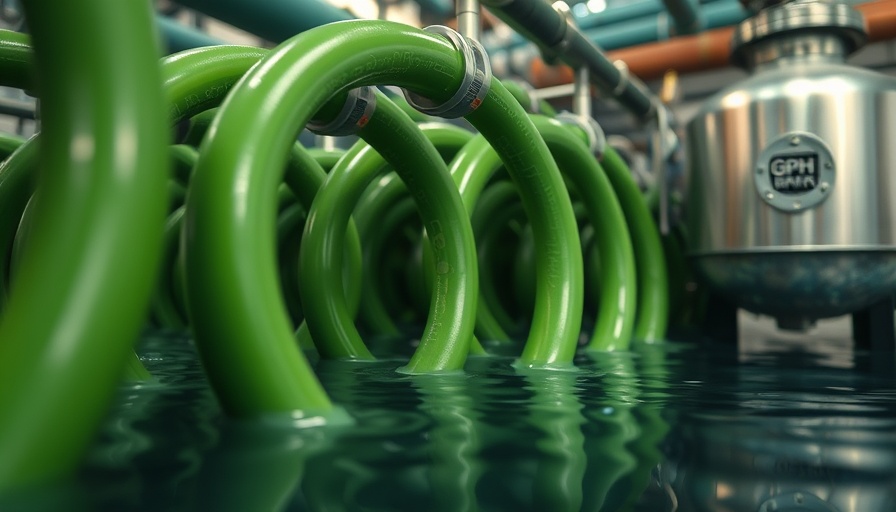
Revolutionizing Home Heating with Seawater Technology
As the world embraces the urgent need for sustainable energy solutions, one innovative approach is the use of seawater heat pumps for home heating. This groundbreaking technology harnesses the stable temperatures of seawater, allowing buildings near coastlines or bodies of water to achieve efficient heating and cooling. With the imminent threat of climate change, there’s never been a more critical time to explore alternative heating solutions.
The Mechanics Behind Seawater Heat Pumps
Seawater heat pumps function by extracting warmth from the ocean or other water bodies through a system of heat exchangers. The process involves circulating seawater through a closed-loop system where heat is absorbed and transferred into buildings. The technology's efficiency stems from seawater's stable temperatures throughout the year, providing a reliable source of energy.
Cost-Effective and Low Maintenance
One of the significant benefits of seawater heat pump systems is their cost-effectiveness. Unlike traditional ground source heat pumps that require extensive groundworks or boreholes, seawater heat pumps need only a simple installation next to the water source. Additionally, these systems require less maintenance, making them appealing to homeowners and builders alike.
Case Studies in Seawater Heating
Several pioneering projects in Scotland demonstrate the real-world applications of seawater heating technology. For instance, a small mining museum has successfully utilized a seawater heat pump to warm its cafe from a nearby stream. Additionally, Port Edgar has implemented a system designed to heat an engineer's shed using seawater drawn from beneath the marina. Early results indicate impressive emission reductions, with some projects achieving up to a remarkable 90% decrease in heating-related emissions.
Potential for Broader Adoption
The potential for seawater heat pumps extends beyond immediate projects. As communities and cities work towards decarbonization goals, integrating tech like this can play a crucial role in redefining energy consumption and heating practices. Countries across Europe are recognizing this opportunity, with research indicating that using stable seawater temperatures can dramatically reduce energy dependency and operational costs.
Future Predictions for Seawater Heating
As energy regulations become stricter in the face of climate change, |seawater heating systems offer a glimpse into a sustainable future. Initiatives from Monaco’s ongoing projects to housing developments across the EU aim to integrate seawater heating. With further research and innovative design, the implementation of seawater heat pumps in homes could become a common practice, leading to greener, more efficient living.
The Role of Policy in Shaping the Future of Heating
Support from governmental policies that incentivize renewable energy sources will be critical in the widespread adoption of seawater heating technologies. Regulations such as the EU's Renewable Energy Directive seek to reduce greenhouse gas emissions, further motivating developers and homeowners to consider such sustainable heating options.
Conclusion: Embracing Seawater Heating for a Cleaner Future
In conclusion, as the landscape of home heating evolves, seawater heat pumps represent a promising advancement in sustainable energy. By utilizing the natural resources available in our environment, we not only reduce emissions significantly but also create cost-efficient heating solutions. It is an exciting time for the transition to clean energy, and incorporating seawater heat pumps could be a vital step in that journey.
 Add Row
Add Row  Add
Add 




Write A Comment